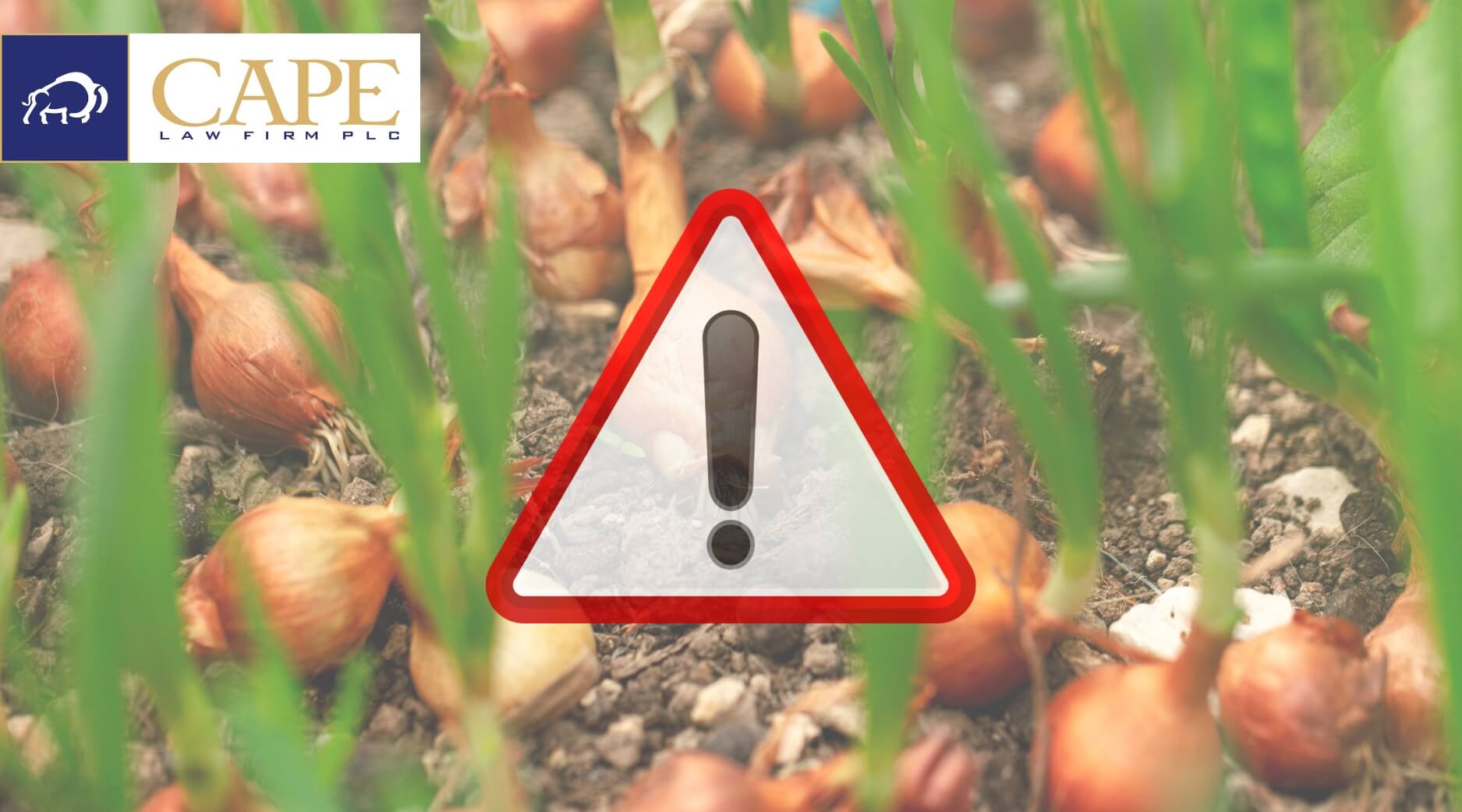For the first time in 40 years, the Environmental Protection Agency (EPA) deployed its emergency authority to suspend the registration of a pesticide, in this case, the herbicide known as DCPA (dimethyl tetrachloroterephthalate) sold under the trade name Dacthal manufactured by AMVAC Chemical Corporation. DCPA has been used in the United States since the 1950s. For the last several decades it has been primarily used in vegetable crops such as kale, broccoli, onions, cabbage, and athletic turf grasses. The EPA’s extreme action was taken after receiving long overdue data from the manufacturer concerning human toxicity, its status as a possible carcinogen, and particular risks to pregnant women and unborn fetuses of significant thyroid disruption. The EPA’s assessments concluded that fetal exposure to DCPA could result in “permanent and significant lifelong adverse effects.” In making the announcement, EPA Assistant Administrator Michal Freedhoff stated, “DCPA is so dangerous that it needs to be removed from the market immediately.”
It is remarkable how long this herbicide was registered, and even more remarkable is the length of time that DCPA has been a concern to the Agency and the process that led to the emergency suspension. EPA expressed concerns about DCPA’s thyroid toxicity as far back as 2002, but it waited until 2013 to ask the manufacturer to submit additional data on the issues. Even then, the manufacturer took almost 10 years to submit the requested data, which finally came in 2022 (and only after the EPA issued a Notice of Intent to Suspend) and it still failed to submit numerous studies.
Interestingly enough, the American Farm Bureau (AFB) submitted a comment in 2022, objecting to the potential suspension of DCPA. AFB trotted out a few familiar lines, stating, “DCPA is the only product that is widely available and effective for use on a broad range of crops grown across the country. Suspending the registration of DCPA, and thus encouraging the adoption of lackluster alternatives, would lead to yield losses, decreased efficiency, and higher costs. Without it, farmers will turn to options that will hurt their bottom line or cause undue harm to the environment.” A copy of AFB’s comment is available here.
Eleven State Attorney Generals Petition for Bulletproof Pesticide Labels (mainly glyphosate)
The day after EPA exercised its emergency power to suspend DCPA herbicide due to its human toxicity, the Attorney Generals from eleven States filed a petition with EPA asking the Agency to amend its pesticide labeling regulation (40 C.F.R. 156.10) such that EPA’s conclusions in its human health risk assessment would carry the force of law. The result of the Petition, if successful, would preempt State law (and other Agencies), essentially enshrining its pesticide labeling decisions as bulletproof. The Petition claims that the proposed amendment will provide national “uniformity” in pesticide labels, and alleges
- “Congress intended EPA to be the preeminent authority on the health effects of products registered under FIFRA.”
- “Congress was explicit in its intent for EPA’s registration decisions to be given primacy over labeling and packaging requirements arising under state law.”
Indeed. This Petition, coming on the heels of EPA’s rare emergency suspension of the dangerous, toxic DCPA pesticide (which the Agency registered for decades), seems to turn a blind eye to the modern reality of pesticide regulation under FIFRA.
- If the EPA is the “preeminent authority on the health effects” of pesticides, how did it allow a herbicide as toxic as DCPA to be sold and used for decades before taking action to remove it from the market?
- How was such a dangerous herbicide allowed to be registered in the first place?
- Actually, Congress was explicit in its intent under FIFRA that mere registration of a pesticide by EPA was not conclusive proof that the product was safe or in regulatory compliance.
- Congress was also explicit in its intent that States were to have a robust role in the regulation of pesticides, including the ability to ban a pesticide for sale and use in a State.
- It is worth keeping in mind that EPA’s conclusions about the safety and toxicity of pesticides are based entirely on manufacturer-supplied data (not scientific testing by the EPA itself).
Instead of enshrining the Agency’s conclusions, which are based on secret data submitted by manufacturers, maybe the data should be made openly and freely available for public scrutiny. That would at least allow the public and stakeholders the ability to analyze the data on which safety decisions are made. Since much of the Petition focuses on glyphosate, there is no doubt that it was crafted by Bayer as another chapter in its long-running campaign to change the law governing pesticide labeling and resolve its glyphosate litigation headache. However, saving one herbicide (glyphosate) doesn’t merit a rule change for all pesticides.
You can read the Attorney Generals’ Petition here.
(The Petition was filed on behalf of Nebraska, Iowa, Alabama, Arkansas, Georgia, Indiana, Louisiana, Montana, North Dakota, South Carolina, and South Dakota).





